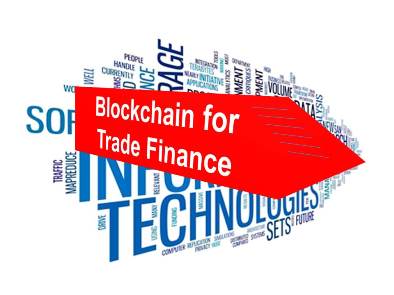 Two former senior bankers have launched a new blockchain-powered auction platform for the distribution of trade finance assets, the first of its kind based out of Dubai. Under the name TradeAssets, the online marketplace aims to put an end to banks’ current extremely inefficient process of buying and selling trade finance assets.
Two former senior bankers have launched a new blockchain-powered auction platform for the distribution of trade finance assets, the first of its kind based out of Dubai. Under the name TradeAssets, the online marketplace aims to put an end to banks’ current extremely inefficient process of buying and selling trade finance assets.
“Now buyers and sellers are doing it by means of phone, fax, email and Excel,” says Lakshmanan Sankaran, founder and CEO of Fintech Innovations International, the company behind TradeAssets. “So it takes around three to five working days for them to do one trade, because they need to exchange information, negotiate pricing and so on. Our platform will help banks to conclude a deal within a day. And after they all become familiar with the platform, it will be a matter of hours.”
Sankaran, former head of trade finance at Commercial Bank of Dubai, founded TradeAssets together with Sumit Roy, previously regional head of cash management for financial institutions at Deutsche Bank in Dubai. They differentiate their new platform by the fact that it is very simple – they have intentionally kept it purely for bank use.
The intention is to bring together a broad ecosystem of primary and secondary financial institutions and development banks in one place. In short, a seller bank will be able to list assets for sale, and buyer banks can place a bid and agree the price with the seller directly on the platform.
In the first two years, the founders target more than 100 clients and aim to reach US$1bn in transaction volumes. The platform will initially launch in the UAE and the wider Middle East, before expanding to selective markets internationally, the first being Bangladesh, and finally going global.
A beta working group of five UAE banks, an Omani bank, a Singapore bank and four Bangladeshi banks (who have not yet been named) have been testing a beta version of the platform over the past few weeks. The developer, fintech firm KrypC, is currently fine-tuning and refining the system. Pilots have already been conducted using dummy data, and the intention is to carry out official real-life pilots before the platform goes live in the first week of April.
Source: Global Trade Review








